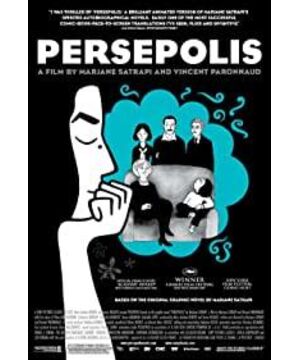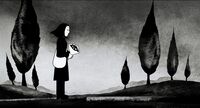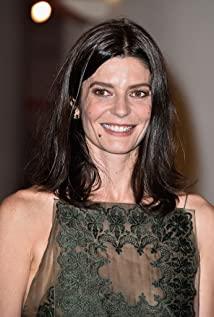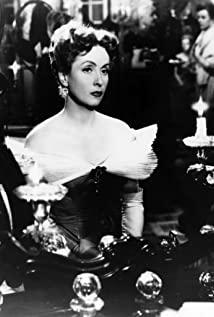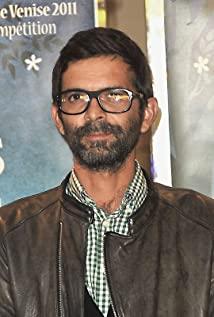——The aspiring young
Iranian girl wearing a black turban, wearing a coat with the words "Punkl is never dead." (Punkl is never dead.) walking on the street. It was the period of the Iran-Iraq war, the artillery fire and gunpowder smoke were everywhere, it was the period of white terror in Iran, people took to the streets to protest against Shah's power rule and wanted to fight for democratic proletarian rule, many people died of the army's uprising. In the repression, countless young people died in a three-year, meaningless war, and those who fought for the proletariat were brutally hanged or died in prison. In that era, the Iranian girl shouted her own slogan like this, and shuttled through the streets that were patrolled by gendarmerie all the time, and shuttled through a strictly disciplined social environment. Maybe she is a rebellious adolescent girl like you and me, but her rebelliousness can be described as brave. Her brave "rebellious spirit", irrespective of satire and criticism, is full of black humor and educational significance.
The film "I grew up in Iran" is adapted from the autobiographical cartoon of the same name by Maja Shatape. It is mainly black and white, with the texture of prints. In short, it is a unique cartoon with a very style, which is different from the mainstream. The gorgeous 3D scenes and splendid colors of the cartoon, even the representative of the minimalist cartoon in 2007, "The Simpsons", is not as simple as "I grew up in Iran" in terms of picture style. It can be said that 2007 In 2009, the European and American cartoon market opened up a non-mainstream line outside the mainstream, and the first representative of this non-mainstream line is "I grew up in Iran". I have been attracted by its unique style.
The background of the story of "I grew up in Iran" is Iran after 1979, from the overthrow of the dictatorship of Shah, who ruled Iran for half the actual period, to the victory and defeat of the Islamic proletarian revolution, and then to the absence of any The significance of the Iran-Iraq war. In this ancient country of history and civilization, life is undoubtedly exciting but helpless for the young Maja Shatapi. During revolutions, riots and wars, Maja used her eyes to tell people about her childhood life and the true face of her native Iran. The whole story is not too sad. The way of expression is light and humorous, but the black and white pictures sketched out with a few simple strokes have rich connotations, involving topics such as growth, family affection, religion, and politics.
The story of the film is divided into two main lines, one is Maja's presentation of Tehran, the capital of Iran, where she lived as a child, and the other is Maja's growth story from adolescence to maturity, from a rebellious girl who loves rock and roll to a rebellious girl. Process of mature woman. These two main lines go hand in hand, showing us a real Iran and the real growth history of an Iranian girl.
In the depiction of Iran, Majia is sincere but helpless. Those who were killed because of the revolution or who were injured by the war are Mazan's relatives and friends. Said that she was angry but helpless, she was so tiny that she had no ability to resist, so she vented almost all her anger in rock music, including secretly buying rock tapes, and wearing clothes that read "punk" "Never Die" coats roam the streets, take off hijabs and secretly drink and party with friends. In most people's eyes, these are just the rebellious ways of an ordinary adolescent girl, but it is not true for Mazan, who lives in Iran. When she was young, she witnessed more and more under the special political situation at that time. Suppressed civil liberties, therefore, these "rebellious behaviors" should have been normal behaviors in that era. They were all shouts from people who longed for freedom. The real sad thing is that such shouting is likely to take away a person's life, is especially precious.
And the love of her parents was a great luck to Mazan, because in those days, in the sound of gunfire every day, Mazan did not cast too many shadows because of it. Praise warm affection. In the film, affection is also a major part of the story, as Mazan's parents teach her to be strong and her elderly grandmother teaches her how to be true to herself as a young woman.
Mazan grew up in Tehran from a little girl until she was 13 years old. Like every girl in this age group, Mazan has the love of her parents and the partners she plays with every day. The White Reign of Terror forced Mazan to leave her parents too early to live and study abroad. During the period abroad, she was constantly moving and missing her parents in her hometown. Zan has grown from a little girl to a big girl. Facing the successive departure of friends, the failure of love and the betrayal of her boyfriend, the film is generally shown with sharp black humor. Of course, this process is also heartbreaking. Every step of Mazan's growth is inseparable from the fact that she is an Iranian, and the process from never wanting to admit that she is an Iranian to facing and proud of being an Iranian is the story of the film. The most touching and educational part of Mazan's upbringing.
After the film was awarded in Cannes, the Iranian authorities banned the film from being shown in Iran, and even put pressure on Thailand to prevent the film from being shown in Thailand. The reason is that the film completely demonized Iran, not a real Iran. . Such rhetoric justifies how absurd and dehumanizing many of the behavioral rules and policies Maja described in her story in Iran.
Throughout the film, we can clearly feel Mazan's love for Iran's hometown of Tehran. Although that place made Mazan so sad and disappointed, the truth is that Mazan is an Iranian, so even though the country is still full of The scars of the cloth, the shadow of the war has not disappeared from the hearts of the people living there, and the repressed civil liberties have not been improved, but as long as she wears that hijab, Mazan is an Iranian woman, and her destiny is still tied to her homeland. stumble together.
Just like what she wrote on her coat, punk will never die, and the revolution has not yet succeeded. For Mazan, she is always full of confidence in Iran, believing that there will be a change one day, Mazan passes this series of simple black and white lines Outline an Iranian who will always love and miss his country.
Text / Aspiring young women reprint and indicate!
View more about Persepolis reviews


